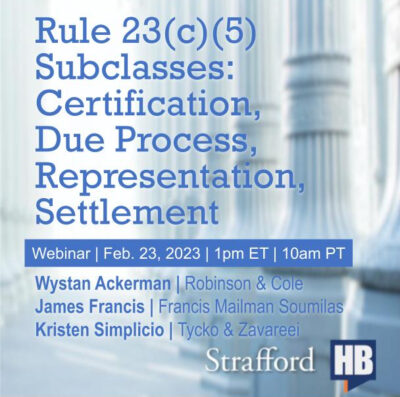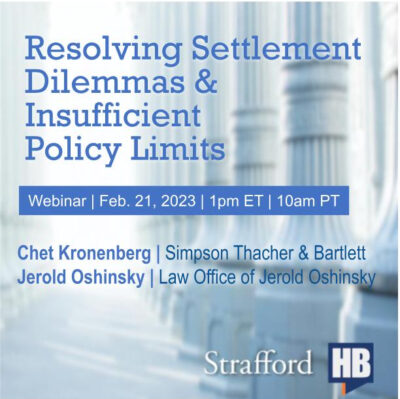Rule 23(c)(5) Subclasses: Certification, Due Process, Adequate Representation, and Settlement
Rule 23(c)(5) Subclasses: Certification, Due Process, Adequate Representation, and Settlement Plaintiffs can define and propose subclasses to address unique issues or to resolve potential intra-class conflicts of interest. Counsel opposing certification will want to emphasize the intra-class conflict as reason to deny certification and show how subclasses render class treatment unmanageable.Due process requires adequacy of representation for all class members, including subclasses. Circuit courts have overturned settlements if they see conflicts of interest among subclasses and the failure of class counsel to ensure independent representation of subclasses.Listen as this experienced panel of class action litigators guides both plaintiff and defense counsel through the effective use of subclasses to resolve the case. Outline Statutory basis of subclasses Types of cases and issues best suited for subclasses Resolving conflicts of interest among subclasses A Strafford production specially selected for HB audiences. Wystan Ackerman Partner Robinson & Cole James Francis Co-Founder Francis Mailman Soumilas Kristen Simplicio Partner Tycko & Zavareei The panel will review these and other key issues: What are the tell-tale signs that a subclass is needed or required? When can subclasses be created? Can there be subclasses within subclasses or is predominance destroyed? What are the due process concerns with subclasses and subclass representation? What should defense counsel consider when deciding whether to oppose certification of [...]




